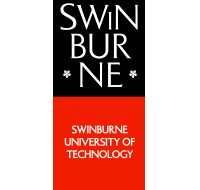About Master Of Science (biotechnology) in Swinburne University of Technology
The Master of Science (Biotechnology) provides an in-depth understanding of the fundamental principles of biotechnology, including molecular biology, biochemistry, microbiology, and medical, industrial, forensic, agricultural and environmental biotechnology. It allows students to study to their desired level and focus on their particular field of interest.
Career opportunities
Medical laboratory scientists, scientific officers or research and development scientists in diverse fields including, biochemistry, microbiology, molecular biology, diagnostic services and pathology services, pharmaceutical industries, forensic science laboratories, veterinary science, racing industry, agribusinesses, wine industry and breweries, biotechnology businesses, food technologists, quality assurance officers, occupational health and safety officers, scientific sales representatives/ executives, associates to patent attorneys, staff with science publishers, newspaper writers in this field, also PhD students in any of the above fields.
Aims and objectives
The Master of Science (Biotechnology) graduates will be able to:
1. Demonstrate a body of advanced knowledge and skills, including new developments in key areas of biotechnology, relevance to the profession of biotechnology and the advancement of science and society and care of the environment.
2. Plan and implement an independent biotechnology research project, applying research principles and methods and using technical research skills.
3. Demonstrate well-developed technical skills and creativity to apply the theoretical knowledge for designing and/or undertaking practical and other professional work in diverse areas of biotechnology.
4. Demonstrate specialised cognitive and creative skills to identity, review, systematically analyse and critically appraise complex and highly specialised concepts in theoretical and applied aspects of biotechnology.
5. Interpret and solve a range of complex scientific problems, of technical, conceptual or abstract nature, by analysing data, designing experiments, and/or formulating other types of investigations.
6. Work independently, efficiently and responsibly, as individuals or within a team or group situation, being accountable for personal duties and outputs as well as communicating with others to achieve team/group outputs.
7. Communicate effectively by using a variety of modes including written, oral and e- communications to convey scientific results, information, or alternative arguments, to a range of audiences, for a range of purposes.
Bachelors: No specific cutoff mentioned
- Applicants must have completed a three-year undergraduate Science degree in a biological or chemical science (e.g. biology, botany, zoology, agriculture, forestry, health sciences, veterinary science, chemistry) equivalent to an Australian Bachelor degree
English language requirements
Each Swinburne course has a minimum English language requirement for entry.
Swinburne English Language Centre - EAP 5 advanced level with overall 65% & all skills 65% or above
IELTS (Academic Module) - Overall 6.5 No individual band below 6.0
PTE Academic - 79 (Reading no less than 18, Writing no less than 20)
PTE Academic - 58 (no communicative skill less than 50)
Swinburne University of Technology Highlights
| University Type |
Public |
| Campus Setting |
Urban |
| Establishment Year |
1908 |
| Student Ratio (Female to Male) |
38:62 |
| Graduate Employability Rate |
84.8% |
| No. of Courses |
261 |
| No. of International Students |
26% |
| Cost of Attendance |
AUD 20,000 – AUD 50,000 (annually) |
| Applications Accepted |
Agent/Online |
| Work-Study |
Available |
| Intake Type |
Semester wise |
| Mode of Program |
Full time; part time and online |
Swinburne University of Technology Average Tuition Fees And Other Expenses
| Department Name |
Total Fee (UG) |
| Arts and Humanities |
AUD 19,698 – AUD 24,623 |
| Aviation |
AUD 32,874 |
| Business |
AUD 32,874 – AUD 41,093 |
| Design |
AUD 19,698 – AUD 28,077 |
| Engineering |
AUD 39,070 – AUD 49,845 |
| Health Sciences |
AUD 28,077 – AUD 35,096 |
| Sciences and IT |
AUD 28,077 – AUD 37,436 |
| Law |
AUD 43,832 |
| Media and Communication |
AUD 19,698 – AUD 24,623 |
| Nursing |
AUD 26,400 |
